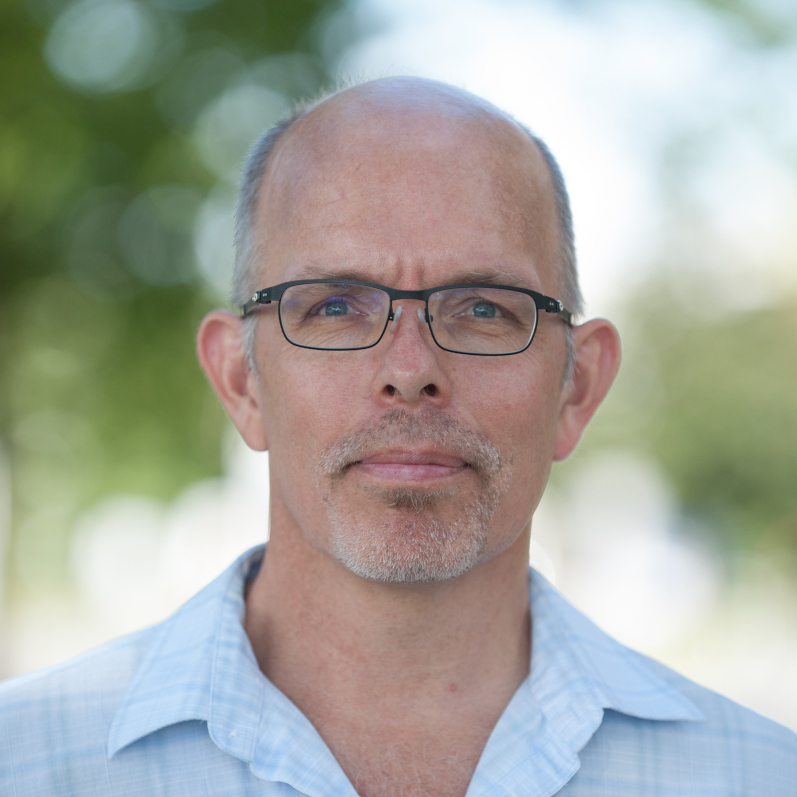Fiche Membre

Professeur titulaire
Département des sciences animales, FSAA, Université Laval
Le Dr Grant Vandenberg a une formation en physiologie animale et en aquaculture. Il a a obtenu un baccalauréat en sciences animales et une maîtrise en physiologie des poissons et en aquaculture de l'Université de Guelph. Après avoir terminé sa maîtrise, il a acquis une expérience de recherche académique aux États-Unis, suivie par un travail dans le secteur privé en biotechnologie aquacole. En 1996, il a déménagé à Québec pour poursuivre ses études doctorales à l'Université Laval en travaillant sur les stratégies d'encapsulation des polymères et la nutrition des poissons. En 2003, Dr Vandenberg reçoit une chaire industrielle CRSNG pour le développement durable de l'aquaculture au Dep. des sciences animales, à l'Université Laval; ses activités de recherche portent sur des approches nutritionnelles pour minimiser l'impact environnemental de la production de poissons.
Depuis 2015, son laboratoire travaille pour développer l’utilisation des larves d’insectes pour effectuer le surcyclage des matières organiques résiduelles, comme approche alternative à valoriser les déchets organiques, et développer des ingrédients novateurs et de haute valeur marchande pour le secteur de l’alimentation animale.
-----
Dr. Grant Vandenberg has a background in animal physiology and aquaculture. He attended the University of Guelph, receiving his BSc in animal science and an MSc in fish physiology and aquaculture. After completing his master's degree, he gained academic experience in the United States, followed by work in the private biotechnology sector. In 1996, he moved to Quebec City to pursue his doctoral studies at Laval University working on polymer encapsulation strategies and fish nutrition. In 2003, Dr. Vandenberg was awarded an NSERC Industrial Chair for the development of Sustainable Aquaculture at Université Laval's Dep. of Animal Science to develop research activities focused on nutritional approaches to minimize the environmental impact of fish production, as well as technological developments related to aquatic animal health, production and physiology.
For the past 5 years, his laboratory has been working to develop the use of insect larvae to upcycle residual organic matter as an alternative approach to manage organic waste, and to develop innovative and high-value ingredients for the animal feed sector.
Ph.D. Fish nutrition, Université Laval (1997)
M.Sc. Physiology of fish, Guelph University (1989)
B.Sc. Animal Sciences, Guelph University (1985)
Direction
Sujet :
Valorisation des substrats de faible qualité avec la mouche-soldat noire
Direction
Sujet :
Black soldier fly (BSF) can feed on a wide range of organic substrates such as food waste, vegetable waste and human and animal faecal wastes and has great potential to efficiently convert organic matter into a high value source of protein and fat that provide sustainable solutions for both organic waste management and food security. A secondary product of this bioprocess is ‘frass’ which is the left-over from growing BSFL fed on different diets and consists of undigested food waste, larval excrement and chitin from larval molting. Larval frass is rich in organic matter in addition to macro and micro elements that have proven valuable as soil amendments for horticultural crops. This bioresource is also a rich source of diverse microbial communities. My doctorate project aims to determine the effectiveness of BSF frass on the suppresivness of fungal pathogens of tomato plant. Specifically, our objective is to establish whether BSF frass could successfully inhibit phytopathogens, without using synthetic fungicides.
co-direction
Sujet :
Optimisation des techniques d'ensilage pour la valorisation des résidus de couvoirs par la bioconversion des larves de mouches soldats noires
Sujet :
My doctoral project focuses on how the host-microbiota's interactions shape the ontogeny and performance of black soldier fly (BSF, Hermetia illucens) larvae. The BSF is an insect of great interest in waste management and entomophagy because the saprophagus larvae revalorises organic waste by bioconversion into biological fertilizer and high-quality animal proteins (for food and feed).
The microbiota is well known to influence it's host metabolic activity, immune response, behavior, physiology, resistances, and reproduction. This project aims to identify how biotic factors (host-microbiota and microbiota inter-species interactions) shape ontology and zootechnic performance of the black soldier fly in the optic of industrial rearing optimization. We investigate how these factors impact the genomic expression profile of the host through metatranscriptomic differential expression analysis of axenic and conventional larvae and functional pathway enrichment analysis. This project will also characterize microbial communities' assembly and networks of interactions, associated with different developmental stages of the BSF by a metataxonomic approach. The end goal is to design a microbial consortium to test in-vivo the effect of potential probiotics on BSF rearing.
co-direction
Sujet :
Optimisation du cycle de production de la mouche soldat noire